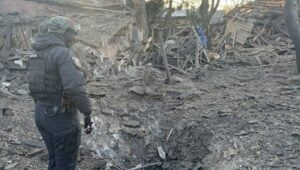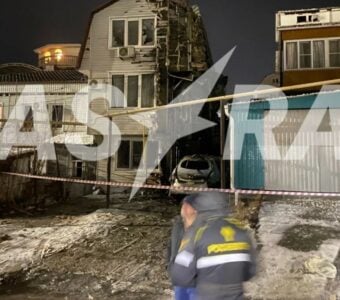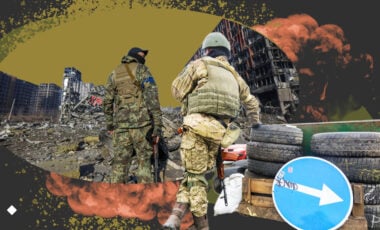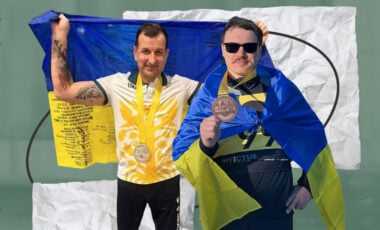Russian-Ukrainian war knows "red lines" – US top general Ben Hodges
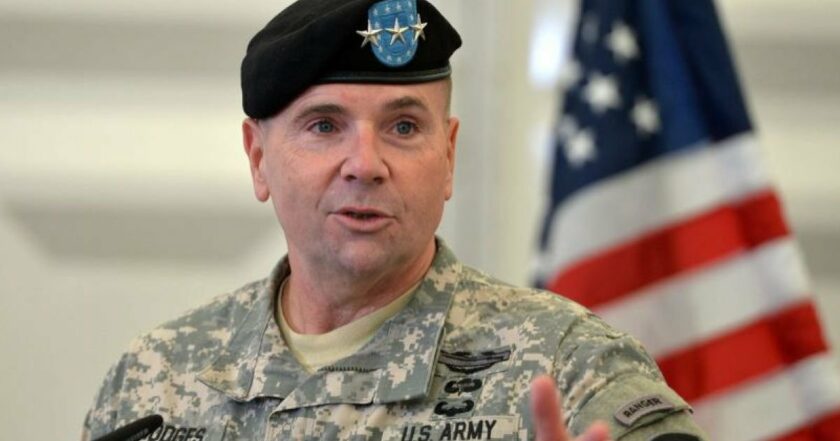
Ukraine's armed forces operation in the Kursk region not only showed that there are no "red lines" in their war with Russia but also reaffirmed Ukraine's strategy in the face of escalating conflict.
Lieutenant General Ben Hodges, the former commander of the US ground forces in Europe, stated this in an interview with DW.
The American officer observed that the actions of the Ukrainian military did not result in the anticipated escalation by the Kremlin, which would involve the deployment of nuclear weapons.
According to Hodges, Putin is still employing traditional tactics of war, including bombarding civilian targets in Ukraine. He pointed to the recent incident on August 9 in Kostiantynivka, where 14 people were killed and over 40 were injured when a supermarket was shelled.
"This refutes the fear that Putin will escalate and use nuclear weapons. The worst thing he did was fire missiles at yet another supermarket in Ukraine. We restrained ourselves for too long," said the American general.
He also expressed hope that "red lines" no longer exist. "I certainly hope not," the military man emphasized.
Hodges stated that the action in the Kursk region falls within the boundaries of legitimate self-defense, which Ukraine is entitled to execute in compliance with international humanitarian law. He emphasized that the primary goal of this action is to safeguard the Ukrainian territory and decrease assaults on its cities.
Hodges mentioned that this operation could potentially be a strategic move to redirect Russian resources and alleviate strain on other parts of the front. Additionally, he brought attention to the potential impact on the Russian energy infrastructure, specifically the gas hub and nuclear power plant in the Kursk region.
"This is a classic working military doctrine – choose a good moment, increase pressure in a new place, and thereby, increasing the overall pressure on the enemy, ease the position of the troops on its side along the entire length of the front. Ukraine is not interested in seizing Russian territories, but this will force the Russians to reassess what they do," Hodges added.
The officer stressed that Ukraine's Western allies, especially the United States, are not attempting to limit Ukrainian initiatives and are backing their right to defend themselves. However, he urged Western leaders, like German Chancellor Olaf Scholz, to provide more explicit evaluations and acknowledge the legitimacy of Ukraine's actions.
This position strongly emphasizes the significance of strategic planning in times of conflict and stresses the importance of working together to maintain regional security and stability.
"Of course, we will not know what was agreed upon publicly. I am glad at least that the United States is not trying to slow down what Ukraine is doing. I have not heard public statements that Ukraine should not do this. Of course, Ukraine has the right to defense, which includes the elimination of places from which Russia attacks Ukrainian citizens. So, does this correspond to Western policy? Yes, Ukraine is defending itself," the general emphasized.
Also, according to his conviction, the Ukrainian troops are carrying out such an operation right now, when the situation on the eastern front is tough for them, to force the Russians to divert their resources.
"I see this as a move by Ukraine to divert Russian resources to force the Russians to redeploy forces. This would reduce pressure on other areas where the Russians are attacking.
Secondly, there is a nuclear power plant in Kursk. There is a huge gas hub in the area. I think one of the goals is also to put pressure on the Russian energy infrastructure to make them worry about it, maybe even destroy it or seize it to exchange for the Zaporizhzhia NPP, for example. I don't know this, but I heard how people speculate about whether it is possible to redirect electricity from there to Ukraine on the eve of winter," the general said.
For reference:
On the morning of August 6, information appeared on Russian Telegram channels that Ukrainian defenders allegedly broke through the border and entered the territory of the Kursk region, Russia.
The Russian Federation's dictator, Vladimir Putin, recently had a virtual meeting with the acting governor of the Kursk region, Aleksey Smirnov, and encouraged him to stay strong and composed. Additionally, the Russian government has announced plans to provide 10,000 rubles ($116) to residents of the Kursk region who evacuated from high-risk areas.
According to the Washington Post, Ukraine now controls the Sudzha gas measuring station, located approximately 8 kilometers deep in Russia. Russia does not deny this.
On August 12, President Volodymyr Zelensky and Commander-in-Chief of Ukraine's armed forces, Oleksandr Syrskyi, directly confirmed the Ukrainian military's offensive operation in the Kursk region of the Russian Federation for the first time. Currently, Ukrainian troops control about a thousand square kilometers of Russian territory.
It is worth noting that as of August 12, the Ukrainian army controls approximately 44 settlements in the Kursk region of Russia, reports DeepState.
According to Zelensky, Ukraine's armed forces currently control 74 settlements in the Kursk region.
The Ministry of Foreign Affairs stressed that Ukraine has no plans to capture any territories in Russia's Kursk region. Its main priority is to safeguard the well-being of Ukrainian citizens. At the same time, the operation prevents the enemy from sending more troops to the Donetsk region and hinders their logistical efforts.






